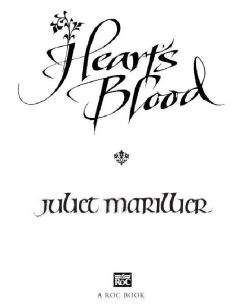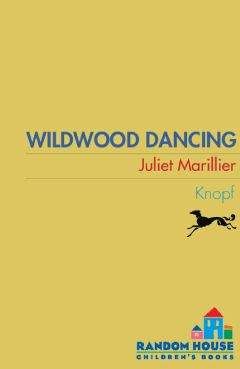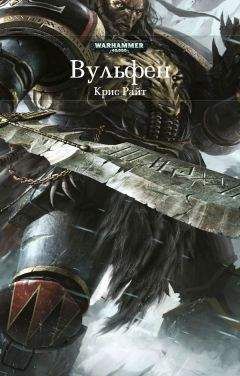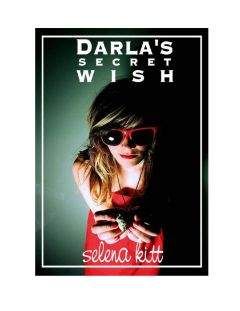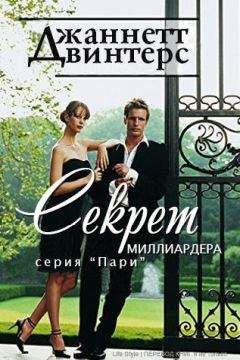Cybele's Secret - Juliet Marillier - Cybeles Secret
It was an astonishing speech for such a man to make. I wanted to ask him what he meant but felt awkward in the company of the others, whose expressions, where not carefully masked, were cynical.
“That’s pretentious claptrap,” said one of the merchants. “This is a primitive artifact, Senhor Aguiar. It’s not the same as trying to sell a scroll dictated by the Prophet or the thighbone of a Christian saint. Nobody still believes in this earth goddess—she’s a figure of ancient mythology. Of course, there’s the superstition attached to this piece; we all know about that. I’m in no doubt my buyer wants it not for its rarity but because he believes it will ensure generations of prosperity for him and his. We could probably all say the same.”
“What exactly is your point, Senhor Aguiar?” Father sounded calm and assured. “I gather you are present as a bidder. And yet you say the item should not be traded. This makes no sense to me.”
“Let us just say that should I be the successful bidder, my intentions for Cybele’s Gift would not be the same as your own or those of our friends here.” Duarte gestured to encompass everyone at the table. “Each of you has come here with a potential buyer in mind, I imagine. My own role is somewhat different. It might be said that I am present on behalf of the original custodian of the piece. It is for that party that I intend to acquire the artifact.”
“Original custodian? What does that mean?” said Enzo of Naples. “The piece is offered for legitimate sale; nobody has a claim to prior ownership. Unless there’s something Barsam hasn’t told us.” He glanced suspiciously at our host, who shook his head with a grave smile. “Besides,” the Neapolitan merchant went on, “your high-minded comments don’t change the fact that you’ve come with a pocketful of silver just like the rest of us.”
“I am not so foolish as to carry my funds on my person,” Duarte said. “The streets of Istanbul can be dangerous at night. But, yes, I am here to purchase, and when I have done so, I will return this piece to the place of its origins. Master Barsam, may we view the artifact now?”
The Armenian rose to his feet. Immediately the servants reappeared, bearing fresh bowls of water and towels so the guests could wash their hands once again.
“Let us repair to the courtyard,” Barsam said. “I have fine musicians here this evening, including a very good player of the tulum. You are familiar with this? A kind of bagpipe; you will enjoy it. Then we will take coffee and you may see the artifact. It is closely guarded and carefully stored. I regret I could not offer this opportunity earlier and to each of you in turn. There were certain dangers attached. I’m sure you will understand.”
Stoyan was waiting by the door and walked out beside me. Across the courtyard, I glimpsed the barrel-chested figure of Duarte’s crewman, the one who had been with him at the market. Murat stood near the gate, talking to one of Barsam’s guards. He looked alert but relaxed, as if he anticipated trouble but was confident he could deal with it.
The tulum player was an artist, wringing a desperately sad voice from his instrument. I could not listen to it without thinking about Tati and Sorrow. The music made me want to cry, but I did not. I sat on a bench between Father and Irene, drinking my coffee out of a tiny tulip-shaped cup in a silver holder. Duarte was perched on the stone rim of the fountain, watching me with his dimples showing. There was no chance at all of speaking to him. Everyone was edgy. Stoyan’s face was in shadow. I could guess what images that bittersweet tune brought to his mind. To lose your only surviving brother at twelve years old was a terrible thing. To have to wait until you were grown up to go and look for him, knowing that every passing day was taking him farther away, if not in miles, then certainly in attitudes, must have been unbearable.
After what seemed an immensely long time, our host invited us to enter a different part of the house, farther down the courtyard. There were massive double doors with elaborate iron bolts. Outside stood an armed guard.
“These precautions are necessary,” Barsam said. “Any buyer of such an item must be equipped to offer it suitable protection. Not all collectors possess such scruples as you do, my friends. And as you doubtless know by now, there is a certain official interest in the artifact. Taking it out of the city will require both ingenuity and excellent security.”
At least one of those present, I thought, had no scruples at all. At least one of them had sent that horrible threat to Antonio of Naples and had perhaps killed Salem bin Afazi as well. I glanced at Stoyan as we went in, and his eyes told me he was thinking the same thing.
There was an antechamber floored with stone and another set of doors that led to an inner room lit by shielded lamps. The only furnishing was a marble-topped table in the center, on which stood a box fashioned of cedar wood and fastened with a heavy lock. We moved to make a circle around the table while Barsam took a key from his sash and turned it in the lock. By the inner door, Stoyan stood on one side and Duarte’s man on the other. The air was almost fizzing with tension. We’d waited a long time for this.
The chest opened soundlessly, its hinges well oiled. Someone made a little sound of surprise as Cybele’s Gift was exposed under the lamplight, nestled in a bed of fine straw packing. Eyes widened all around the circle. Here was no marble tablet with a neat record of ancient sayings, no slab of granite chiseled with antique script. Sitting neatly in the Armenian merchant’s storage chest was a little statue fashioned in clay baked to a rich red-brown and shaped in the form of a generously proportioned woman. Her hair was wild, her nose broad and flat, her mouth stretched in a grin. Her eyes were blank dark holes. Her right ear was chipped, but her left still bore in its pierced lobe a tiny gold ring. It was Cybele herself.
Duarte recovered first. “This is unexpected,” he said. “Master Barsam, may we handle the piece?”
Barsam passed him a pair of thin cotton gloves. At that point, no doubt all the others were wishing they had asked first. Alonso di Parma was frowning. Enzo of Naples wore an expression that I could only describe as avid. Even Irene had a glint of excitement in her eyes.
“Mistress Paula?”
It took me a moment to realize Duarte was holding out the gloves to me. A challenge; I had sensed the frisson of disapproval in the chamber as the Portuguese spoke. I felt my face flush as I slipped the gloves on. I was terrified that my hands would shake and I’d let go of Cybele and smash her to pieces.
“Is this wise—” someone began, then fell silent as I reached into the straw and lifted the statue, supporting it from underneath with one hand as I held the neck with the other. The piece was lighter than I expected, and as it left the box, I saw why. Where the Cybele of the miniature had possessed a round belly, crossed legs, and neat bare feet, this statue ended abruptly at around waist level. Make me whole. A deep shiver ran through me.
“Where is the inscription?” one of the merchants asked. “The lore is that Cybele wrote her last message on the piece. I see no markings of that kind here.”
“That’s because this is only half of Cybele’s Gift,” I said, looking at Barsam. “The writing is on her belly and across her hip, or should be. This piece is broken.”
A profound silence fell. As it drew out, I could almost hear the seven merchants thinking. I knew every one of them was mentally reducing his bid or withdrawing from the competition altogether. The deal had just been turned on its head.
I was asked to substantiate my bold statement and I did, describing the miniature I had seen in Irene’s library and its stunning resemblance to the artifact. Irene confirmed that the picture had indeed shown the figure of a whole woman. I found a trace of ancient writing near the broken-off edge of the statue: all that was left of the inscription. I must have been convincing. The place began to clear quickly, each of the merchants in turn making his polite excuses to Barsam and departing forthwith. Our host appeared unperturbed. He murmured that he had not known Cybele’s Gift was ever more than this half woman or that the inscription was so critical to its value.
Before we left the lamp-lit chamber, Father held the piece himself, subjecting it to close examination. “This is a remarkably neat break,” he said quietly. “If the other part could be located, it would not be so difficult to mend. Wouldn’t you agree, Paula?”
“Mmm,” I murmured, my head buzzing. Had Tati intended me to make just this discovery? Surely the quest she was leading me on could not be to find the missing half of the statue. I had spoken out instinctively, shocked to find Cybele less than her full, exuberant self. It was clear my revelation had lost Barsam the opportunity to deal with most of those present; their buyers would not want the artifact without the goddess’s last words and the luck they conveyed. Did that mean Father would also withdraw from the deal? I tried to read his expression, but I could not. He was wearing his merchant face.
When we got out to the courtyard, most of the guests had left. Duarte was over by the fountain, talking to Irene. He didn’t seem put out in the least by what had happened, or by her glacial stare.
“You wish to leave, Master Teodor?” Stoyan had obtained our cloaks from Barsam’s steward and now stood with them over his arm.
Father lowered his voice. “I wish to create that impression. But I want a word with Barsam after the others have departed. A few moments will do. Paula, the Portuguese seems to be settling for a long talk with your friend. I wonder if he can be persuaded to move farther out of earshot?” There was definitely something afoot; he sounded as if he was suppressing excitement.
“Of course, Father.”
Farther down the garden, the musicians were still playing, not to entertain company now but for their own enjoyment. They were gathered beside an outdoor cooking oven, with a number of Barsam’s household retainers as audience. The tulum had been joined by a drum and a stringed instrument; the rhythm set my feet tapping.
I gathered up Irene and Duarte with an announcement that I was keen to move closer and listen to the music properly. Murat followed us at a discreet distance. Behind me, Father, shadowed by Stoyan, moved to engage our host in quiet conversation. Between the fountain and the tulum, I could not distinguish the words.
“You are fond of music?” inquired Duarte.
“When it’s well played, yes.”
“And dancing?”
“I don’t have much opportunity for that kind of thing, senhor.” I’d danced at Jena’s wedding and at Iulia’s. Apart from that, there had been scant occasion for it since our portal to the Other Kingdom was closed to us.
“Of course.” He nodded sagely, but his dark eyes were dancing themselves. “You are a scholar, too serious for such frivolous pastimes. Since I am myself a lover of books, I salute you for that. On the other hand, it is a trifle early for you to be turning your back on the pleasures of youth. Are you not afraid of growing old before your time?”
“You are offensive, Senhor Aguiar.” Irene’s tone was unusually sharp. “Save your barbed comments for your own kind.”
“Thank you, Irene, but I can defend myself,” I said, squaring my shoulders. “Senhor Duarte, I am a grown woman, and I make my own choices as to how I will spend my time. Sometimes I read; sometimes I dance; sometimes I do neither. As far as I can see, you are a grown man and far too old for silly games.”
“Once again you dismiss me,” Duarte said, and I had no idea whether he was serious or not. “Like the rest of them, you believe I don’t have an ethical bone in my body.”
“Other folk’s opinions are all I have to judge you by,” I said. “Those and the brief impressions I’ve gained at our rather odd meetings. If your actions proved those opinions wrong, I would be quite prepared to revise my judgment.”
“Paula, perhaps we should be moving on,” Irene said. “Your father…” She glanced back toward the fountain, but the light was such that we could not see those who stood beyond it.
The music pounded and wailed its way toward a climax. The onlookers augmented the thumping of the drum with vigorous, rhythmic clapping. “I’d like to listen to the band just a little longer, until he calls me,” I said.
“It might be better if—”
“You think your father has lost interest in buying, now he knows the statue is incomplete?” asked Duarte.
I scrambled to answer the unexpected question. “I would expect that,” I said, even as it struck me that Duarte himself was showing no inclination to leave in a hurry. “It would be different if we had some information about where the other part is. If we found that in good condition and could repair the piece, it would still be worth buying. The value would be much lower, of course, even if the mending was expertly done. But Barsam didn’t seem to know about the other half. It would be quite a mission to track it down.”
“Agreed.”
There was something arresting in Duarte’s expression; I tried to interpret it. Was it possible he still planned to bid? How far would he lower his own offer, knowing only part of the artifact was on sale?
His lips twitched; his dark eyes twinkled. “You wish to read my mind?” he queried.
“I’m not so desperate for entertainment,” I snapped, annoyed to be caught staring.
Irene came to my rescue. “Of all those present,” she observed, “you, Senhor Aguiar, seemed the least surprised by Paula’s revelation. And I note that you remain here in conversation with ladies when all others are gone.”
“Ah.” He gave an enigmatic smile, directed more at me than at my companion. It was as if he wanted to share a secret and, despite my better judgment, I felt a thrill inside me akin to that produced by the wild music of the tulum. “I am not here solely as a purchaser, Mistress Irene. I came also to renew my acquaintance with the charming Paula. As unrelated men and women do not mingle in public places here in Istanbul, I must seize what opportunities come my way to speak with her.” He glanced at me. “You’re blushing again,” he murmured. “How sweet. When you look like that, it becomes obvious why you need a chaperone.”
“This conversation is finished!” snapped Irene, moving forward to take my arm. “Senhor Aguiar, you are old enough to know better.”
“Senhor Duarte has yet to prove that,” I put in. “Thus far I remain unconvinced.”
“Of my age or of my wisdom, Paula?”
“I don’t know how old you are, nor am I especially interested,” I said. “But I do have a question for you. What did you mean before, when you said you’d take Cybele’s Gift back to the place of its origins if you bought it? What place? I thought all that was known was the general region it came from, not an actual location.”
The tulum played on; the fountain added a soft accompaniment. It seemed to me that both Duarte and Irene had become suddenly very still, as if my speech had possessed some meaning far beyond what I had intended. I had strayed into deep waters and had no idea how to get out.
